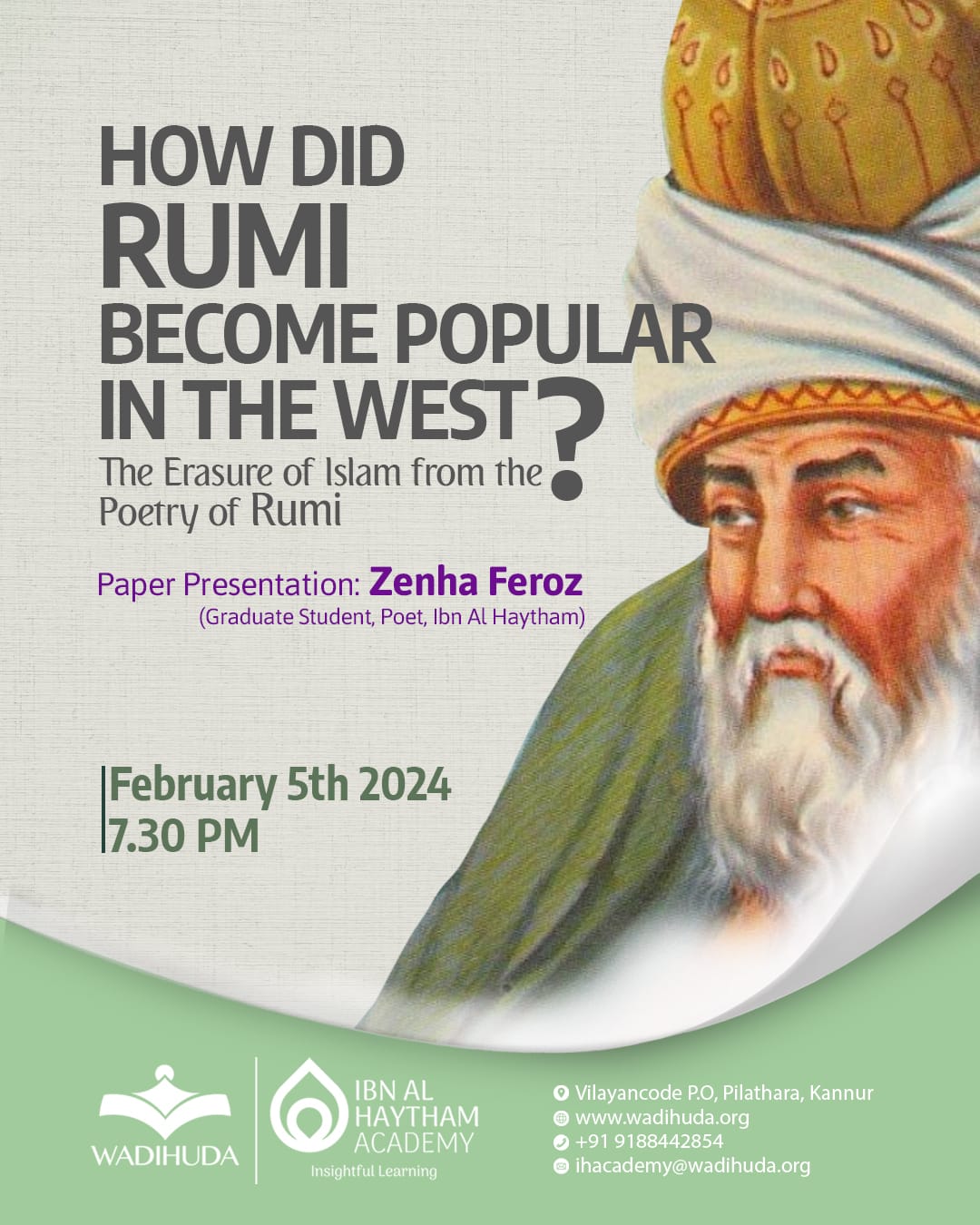Apr 24, 2025
The popularity of Maulana Jalaluddin Muhammad Rumi's poetry in Europe and America, along with the wide recognition of the name "Rumi," marks an amazing development. Rumi’s works, literary pieces of a Muslim jurist and mystic, written in Persian, transcended language, religion, and culture barriers to reach peoples of different civilizations.
The Western world’s interest in studying Rumi’s personality and poetry began as early as the 18th century through diplomats and travelers who visited the Ottoman Empire and acquainted themselves with the Mevlevi Order and its famous symbol, the Sama performance. Subsequently, they transmitted their observations to their own countries.
Western Orientalists wielded significant influence in introducing Rumi to the Western world. However, for much of the past two hundred years, Western scholars (sometimes called Orientalists) have not viewed Sufism as largely inspired by the Qur'ân and Traditions [Ahâdîth]. Instead, they tended to perceive Sufism as imported from other religions such as Christianity, Judaism, Neoplatonism, Gnosticism, Hermeticism, Zoroastrianism, Hinduism, or Buddhism. Rumi's influence in Western culture is widespread in popular and artistic circles, contrasting with its influence in the Islamic world, particularly the Arab world, where it is largely confined to the academic domain.
In today's discussion session, our graduate student Zenha Feroz will present a paper on " How did Rumi Become Popular in the west"?

















